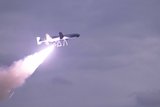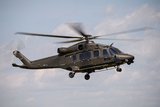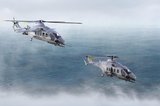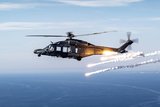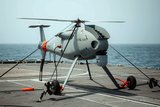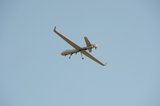CAF to replace two Challenger 601 aircraft
The Canadian Armed Forces (CAF) have replaced two Challenger 601 utility aircraft with two newer 650 models (pictured). Delivery of the two new aircraft is part of a C$105 million ($78.35 million) contract that also includes initial training and spare parts.
The 601s entered into service in the 1980s and now fall short of meeting operational requirements. New aviation regulations in both the US and Europe mean that the Canadian military would be severely restricted in its ability to operate the aging platforms in international airspace beyond 2020.
Harjit Sajjan, Minister of National Defence, said: ‘This purchase is another example of our government’s commitment to provide the CAF with the modern equipment they need to carry out the critical work we ask of them.’
The Challenger fleet is operated by the Royal Canadian Air Force from Ottawa International Airport and is maintained by Transport Canada technicians.
As part of our promise to deliver comprehensive coverage to Premium News subscribers, our curated defence news content provides the latest industry updates, contract awards and programme milestones
More from Air Warfare
-
![First confirmed US one‑way drone strike on Iran sharpens Pentagon UAV expansion]()
First confirmed US one‑way drone strike on Iran sharpens Pentagon UAV expansion
The US is currently escalating its efforts to acquire more than 300,000 low-cost one-way attack drones, with the confirmed use of these platforms against Iran in recent days emphasising their growing use in combat.
-
![UK MoD awards Leonardo with £1 billion New Medium Helicopter contract]()
UK MoD awards Leonardo with £1 billion New Medium Helicopter contract
The £1 billion contract has secured jobs at Leonardo’s Yeovil site and will provide the British forces with 23 new medium-lift helicopters.
-
![NSPA outlines next steps for NATO’s Next-Generation Rotorcraft Capability effort]()
NSPA outlines next steps for NATO’s Next-Generation Rotorcraft Capability effort
The NATO agency gave further updates on the next stages of its rotorcraft programme and timelines for the next three years, with the initiative aimed at replacing ageing medium-lift helicopters in various NATO countries.
-
![UK’s New Medium Helicopter deal finalisation on horizon, alludes Leonardo CEO]()
UK’s New Medium Helicopter deal finalisation on horizon, alludes Leonardo CEO
A potential announcement within days could end speculation around the UK Ministry of Defence’s procurement direction for the NMH programme.
-
![UK Royal Navy notes hybrid air wing progress with eyes on Peregrine drone development]()
UK Royal Navy notes hybrid air wing progress with eyes on Peregrine drone development
The Royal Navy’s Maritime Aviation Transformation (MATX) initiative aims to modernise aviation capabilities to use uncrewed systems where possible, supporting its goal of a hybrid air wing by 2040.
-
![Middle East UAV market underscored by $17bn in unsigned deals]()
Middle East UAV market underscored by $17bn in unsigned deals
While several UAV programmes remain unawarded in the Middle East, Saudi Arabia is forecast to be the biggest spender with its potential MQ-9B and Gambit deals overshadowing others in the region.










